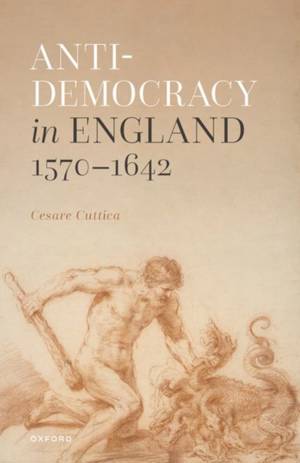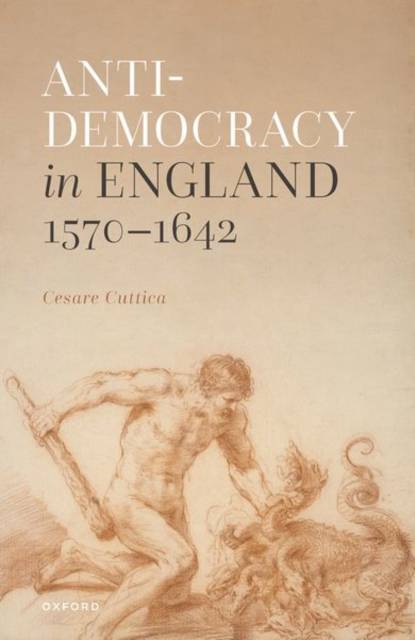
Door een staking bij bpost kan je online bestelling op dit moment iets langer onderweg zijn dan voorzien. Dringend iets nodig? Onze winkels ontvangen jou met open armen!
- Afhalen na 1 uur in een winkel met voorraad
- Gratis thuislevering in België vanaf € 30
- Ruim aanbod met 7 miljoen producten
Door een staking bij bpost kan je online bestelling op dit moment iets langer onderweg zijn dan voorzien. Dringend iets nodig? Onze winkels ontvangen jou met open armen!
- Afhalen na 1 uur in een winkel met voorraad
- Gratis thuislevering in België vanaf € 30
- Ruim aanbod met 7 miljoen producten
Zoeken
Omschrijving
Anti-democracy in England 1570-1642 is a detailed study of anti-democratic ideas in early modern England. By examining the rich variety of debates about democracy that took place between 1570 and 1642, it shows the key importance anti-democratic language held in the late Tudor and early Stuart periods. In particular, it argues that anti-democratic critiques were addressed at 'popular government' as a regime that empowered directly and fully the irrational, uneducated, dangerous commonalty; it explains why and how criticism of democracy was articulated in the contexts here under scrutiny; and it demonstrates that the early modern era is far more relevant to the development of democratic concepts and practices than has hitherto been acknowledged. The study of anti-democracy is carried out through a close textual analysis of sources often neglected in the history of political thought and by way of a contextual approach to Elizabethan, Jacobean, and Caroline history. Most importantly, the study re-evaluates the role of religion and cultural factors in the history of democracy and of political ideas more generally. The point of departure is at a time when the establishment and Presbyterians were at loggerheads on pivotal politico-ecclesiastical and theoretical matters; the end coincides with the eruption of the Civil Wars. Cesare Cuttica not only places the unexplored issue of anti-democracy at the centre of historiographical work on early modern England, but also offers a novel analysis of a precious portion of Western political reflection and an ideal platform to discuss the legacy of principles that are still fundamental today.
Specificaties
Betrokkenen
- Auteur(s):
- Uitgeverij:
Inhoud
- Aantal bladzijden:
- 296
- Taal:
- Engels
Eigenschappen
- Productcode (EAN):
- 9780192866097
- Verschijningsdatum:
- 26/08/2022
- Uitvoering:
- Hardcover
- Formaat:
- Genaaid
- Afmetingen:
- 164 mm x 238 mm
- Gewicht:
- 594 g

Alleen bij Standaard Boekhandel
+ 354 punten op je klantenkaart van Standaard Boekhandel
Beoordelingen
We publiceren alleen reviews die voldoen aan de voorwaarden voor reviews. Bekijk onze voorwaarden voor reviews.











